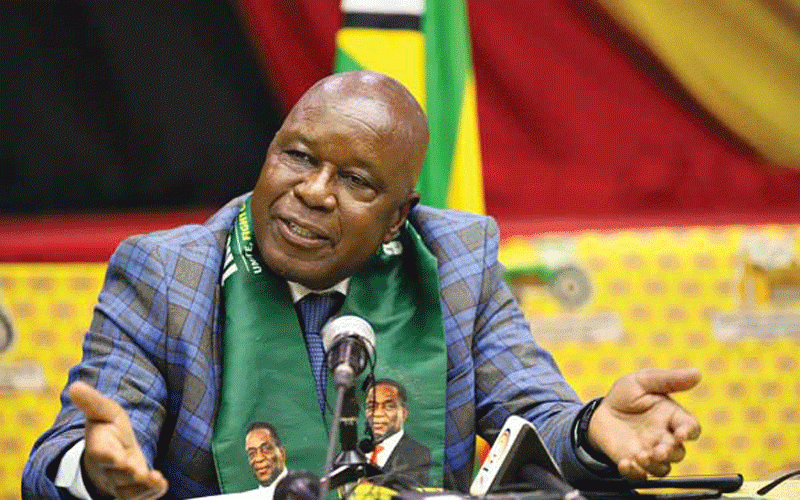
The government’s announcement that it is amending the indigenisation regulations as well as related policies and replacing them with another mouthful of strategies and policies, too long and unnecessary to mention here, points to the triumph of realism over vain politicking.
RASHWEAT MUKUNDU
The key lesson is that the economy does not listen to slogans nor attend rallies, it has its own rules and they appear rigid.
It may not be necessary at this moment to accuse Zanu PF of backtracking on its promises.
Rather we must applaud Zanu PF, no matter how slow to learn, for finally waking up from its slumber of delusions of self importance and it’s belief in exaggerated geo-political influence of Zimbabwe.
For the party told us in the pre and post-July 31 that investors have no choice, but to come to Zimbabwe for platinum, gold, and diamonds.
It appears this was not the truth; on the contrary the few we had by way of investors packed their bags and left after July 31 resulting in a serious liquidity crisis.
This crisis is not so much out of hatred of Zanu PF, but more because of its convoluted economic policies that spawn corruption and poverty rather than growth.
- Chamisa under fire over US$120K donation
- Mavhunga puts DeMbare into Chibuku quarterfinals
- Pension funds bet on Cabora Bassa oilfields
- Councils defy govt fire tender directive
Keep Reading
So it is gratifying that in the past few weeks Zanu PF and its top leadership from President Robert Mugabe to Finance minister Patrick Chinamasa have been signalling a revision of the indigenisation policy to be accommodative of foreign investors, but importantly to be fair to our desperate economic situation.
The government is realising that there is a world of a difference between empty sloganeering, gathering thousands to tell them they will have jobs and live heaven on earth, and the struggles of fulfilling such promises, more so when the movers of such dreams do not even believe in them.
And I say do not believe in them because we have seen the indigenisation law being applied selectively, with nationalities from Russia and China, despite not bailing the Finance ministry, being given preferential treatment over others.
We have seen the law being used for primitive accumulation rather than economic growth. Even Zanu PF had to stop some of its own from grabbing conservancies where they never put a cent to develop nor have the slightest idea how to operate them.
We have seen dreams of empowerment eroded by corruption. The Zanu PF government forgets that post the Cold War, no one really cares about your ideology.
It is for this reason that the Chinese leadership has been to Washington and vice versa, far more times and none has stepped on the tarmac of Harare International Airport.
It is equally for the same reason that as many Western companies were at the Russian equivalent of the Davos Economic Forum, the St Petersburg Economic Forum last week, despite the simmering tensions between the West and Russia over events in Ukraine.
Asked why, French energy company Total chief executive ofificer Christophe De Margerie simply said, “we are involved in business. We are not involved in politics”.
It is business that is increasingly defining relations. No matter how politics tries to interfere the Chinese and the Americans still find a way of solving issues and moving on.
These events and positions that the West, Russia and China take on economic issues should adequately inform the Zanu PF government that the years of putting slogans ahead of economic proposals are long gone.
Rather the national interest, as in growing the economy and satisfying the needs of your people is far more important than misplaced and vain policies. There was and there is nothing to indigenise at the moment in a society with as many unemployed and many others starving.
Our Treasury is bankrupt to the extent of struggling to pay civil servants and yet we call for expropriation of companies and mines.
The problem with the never ending about-turns by Zanu PF is that they are never grounded in any long term planning, but rather in short term measures which the party and government hope can overturn a negative tide and afford them a chance to start on their mischief all over again.
The question that has to be asked now is whether the government will stick to the new plan, whether the law will be amended and when and what efforts will be made to engage the rest of the world, not so much on Marxist pedagogy, but on reviving the National Railways of Zimbabwe, repair roads and open closed factories.
The lesson to the Zanu PF government is to demonstrate leadership and more so after it won the July 31 poll.
The victory must give confidence to Zanu PF to come up with meaningful economic policies and not perpetuate meaningless political slogans. Zimbabweans citizens have endured long enough and want some movement on the economy.
After all is said and done Zanu PF has made its point and not one citizen is not aware of its talk of empowerment and indigenisation.
The government and people of Zimbabwe are, however, better served by a policy that empowers them rather than leaves them impoverished and in need of external help.
Zanu PF empowerment policies are an antitheses to real empowerment. Post July 31 the government has struggled even to protect its people from disasters that include the Tokwe-Mukorsi dam disaster.
In a humiliating manner Local Government minister Ignatius Chombo was forced to beg from their “enemies”, the West and donors for help.
The same minister and many of his colleagues in government had received new Mercedes-Benz worth millions just a few months back.
Going forward there is need for a better definition of what empowerment is and means. Are we all going to own farms, mines and factories, who is to be empowered and how.
Am I better empowered by a school and my neighbour better off with a farm. Is there a one size fit all as has been pronounced?.
The government must be encouraged to plan long term, and have a vision beyond five years and an economic vision that is not dictated to by electoral politics, but the need to develop Zimbabwe.
It is the desire to win elections and not develop Zimbabwe that has largely driven economic policies in Zimbabwe.
The hope is that this ongoing economic crisis has taught the leadership something, more importantly that we don’t eat politics.











